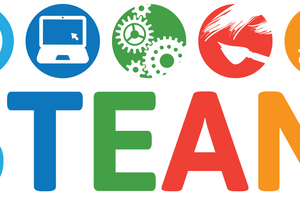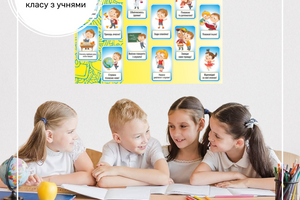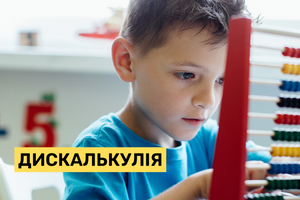Content
1. Games for elementary school students
2. What do children learn while playing?
3. Games in class
Games for elementary school students
Of course, children should be protected from content that harms minors. Violence, horror, sexual acts, etc. have no place on elementary school students' cell phones, PCs, and consoles. These situations can easily be avoided if you test the games yourself a little beforehand or do a little research on them.
There are tons of tutorials, games, or quizzes on YouTube for almost every game, so you can get a good idea of the difficulty, atmosphere, and kid-friendliness within minutes if you don't want to try the game yourself.
There are thousands of great games for toddlers in dozens of different categories. Games are a whole universe. For anyone who's never experienced it but wants to improve their contact with young gamers, it's worth a little insight - the topic is undeniably fascinating.
And as gaming becomes more and more commonplace for young children or parents who are now part of the gaming generation, the acceptance is thankfully growing as well, so gamers don't have to justify their passion as often anymore.
What do children learn while playing?
What and how much a child learns with the help of computer games obviously depends a lot on the respective games and genres. As with all learning processes, investment of time undoubtedly plays a role.
In addition, everyone has different preferences and abilities. "Tell me what you read and I'll tell you who you are" can also be applied to game selection. And here also the question of chicken and egg arises: do I learn to organize processes because I play the corresponding games, or do I choose this genre because of my own commitment to organizational tasks?
A study from the University of Bochum shows that children who play action games for more than 15 hours a week can perceive new situations faster and categorize new knowledge faster – “especially in situations with a high level of uncertainty”, as one researcher puts it. During the test, children were asked to associate combinations of symbols with events, that is, decipher the meaning of the code. The hippocampus, which is responsible for learning and memory, was more active in the players than in a comparison group that abstained from gaming.
So, playing computer games will teach you something - maybe even teach yourself. Other skills that are strengthened as you play include the following:
Concentration, patience and determination
Many games take time to develop a story or skill. It takes weeks or months or practice to reach a certain level, while of course skills and achievements are regularly unlocked to keep the reward center running diligently.
Fine motor skills, hand-eye coordination and reaction speed
Anyone who has tried all kinds of sports games will quickly notice how difficult the controls can be to master. So you either immediately abandon this game genre, or become a master of your craft. Even a classic like Worms requires a good sense of the right angle and accurate aiming, which is not so easy on the first try.
Memorization
The examples are endless: sometimes you need to remember the correct path or location, in other games you need to remember the characteristics of character classes or equipment, in others you need to pay close attention to dialogue prompts or know the mechanics of certain enemies. And if not? Well, then in most cases you won't get anywhere. So you remember it, look it up, write it down… When all you really wanted to do was play.
Logical, strategic and spatial thinking
Long-term planning and forward thinking are needed not only in strategy and construction games such as the Anno series, Rimworld or Minecraft. Even mini games or mobile games like Candy Crush or Bubble Shooter are only forgiving of accidentally clicking or typing for a short time.
Games where you build a city or build buildings yourself also require spatial imagination, e.g. For example, in the Sims you can put furniture where it belongs, or in Anno the fire department has a road to a house that is hopefully also accessible.
And in games that focus on management, even an experienced player will quickly sweat if he wants to complete all the tasks on time and please all the characters. When talking to many process optimizers, whether professional or just in their personal lives, it turns out that they still like to play games in their spare time, in which they optimize production chains, save money or plan flight routes - and get better and better at it.
Media literacy
Anyone who is exposed to technology at a young age will benefit from it later in life. In addition to controlling a PC, console, etc., many games require a deeper understanding of the digital world, e.g. when you research online gaming tips.
Today, many elementary school students know how to upload a video to YouTube or stream (live) their own game in just a few minutes. Also, their gaming hardware is often sacred to gamers young and old. So if there is a defect, many people will dig into it until they can fix it themselves.
Of course, not all young gamers become IT professionals. But there are many in this industry who are passionate about games even as adults, some of them gained knowledge that is now important to their careers, even as children, and at some point through their hobby, technical skills. We all know and feel that the IT industry is becoming increasingly promising.
Math
Whether it's just calculating averages, adding bonuses, saving certain items or understanding the entire market system: hardly any game can do without numbers.
In some games for the elderly, for example, calculating probabilities is so complex that there are separate programs for it. And there are plenty of players who enjoy crafting like this, even if it takes hours to days and/or countless tries to get their personal optimal weapon, armor, or ability.
Teamwork and communication skills are optional
Whether it's co-op or guild, in many games you either only progress, or at least make much better progress, when you're working with others or playing with friends for fun. If you don't follow the rules or have poor written or verbal communication skills, you will quickly feel the negative consequences. Joint success is even greater.
Of course, children should not communicate over the Internet with people they do not know personally.
English or other foreign languages to choose from
This applies not only to educational games. Many games can also be played in languages other than Ukrainian, which can be a learning incentive, especially if you already know the content of the game. Young people often communicate with other players around the world, usually verbally via TeamSpeak or Discord or written in game chat.
In addition, the gamer's language is permeated with English terms: area, unique, damage, crafting, skill, spawn, fail, loot, item, drop, event, dungeon, achievement, cheat familiar to young gamers. True, this jargon sometimes blooms in the eyes of the uninitiated: "When a boss spams a zone, he drops a lot of loot and even unique items!"
Choosing Empathy and/or Tolerance
A lot of games like Stardew Valley are about befriending (in this case, very diverse) characters and choosing the right answers in dialogue. Decisions often have consequences for the rest of the game and destroy the entire storyline, so they need to be carefully considered.
Knowledge: historical, mythological, physical, psychological, etc.
Anyone who plays The Sims learns a lot about psychological needs, personality traits, and interpersonal relationships. Many fantasy games use historical or mythological elements, while scientific laws can be found in sports games and fight scenes.
If you ignore simpler games such as card games or Candy Crush, the so-called casual games, there is hardly a game that does not provide knowledge in one way or another - whether you can make lamp oil from whales or cinnamon from trees. Speaking of card games, how many cards are in a deck sometimes turns out to be basic knowledge for math problems, though more so after elementary school.
Games in class
Everything that motivates students, affects their daily life, helps them learn, should be used. In secondary schools, there are already projects in which the class group itself plays an interdisciplinary role, and students can perform various tasks in the role of wizards or fighters, or exchange bonuses with the class teacher.
The use of computer games or their elements must, of course, be organized. How effective some programs or browser games can be, e.g. to improve mental arithmetic or logical thinking, probably only a few teachers will spontaneously ask 25 students to take out their cell phones and just practice for 10 minutes (assuming all the kids have cell phones).
Digital equipment also leaves a lot to be desired in many schools, making it nearly impossible to give all students controlled access to the same games. But if you have access to tablets or a computer room, just search the Internet for suitable games for your chosen topic. For many children, a lesson in which they are allowed to "just play" will be seen as rewarding rather than learning.
In addition, children may also be interested in introducing others to their favorite game. It is possible that you will also be inspired to use computer games in class from time to time - or simply make them a topic.
















































